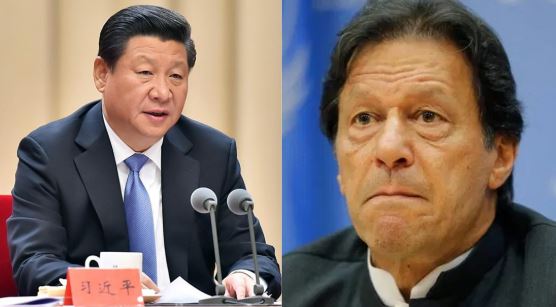The troubles for Pakistan continue to mount especially on the economic front, as the cash-strapped country has resulted in China too is now beginning to act cautiously when it comes to granting loans to Pakistan for crucial China Pakistan Economic Corridor (CPEC) projects as the dragon has asked for additional guarantees before sanctioning $6 billion loans for the rail project. Although the official reason is being described as the poor economy of Pakistan, it is no secret that Chinese projects have had to bore the brunt of the attacks of Balochis in projects situated in Balochistan.
According to a report, China has sought additional guarantees before sanctioning a $6-billion loan for the Main Line-1 (ML-1) railway line project in Pakistan which officially is said to be because of Pakistan’s rapidly deteriorating financial position. However, anyone who has followed the CPEC projects closely will tell you about China’s fears over the security of its projects which have come under repeated attacks from the Sindhis and Balochis who are vociferously against any Chinese or even Pakistani interference for that matter in their region.
Unsurprisingly, Pakistan hoped for ‘cheapest lending’, however, its dreams were crashed as China proposed a mix of commercial and concessional loans to fund the rail project which dashed the hopes of Pakistanis of securing the $6 billion loan at 1 per cent interest rate.
The project involves dualisation and upgrading of the 1,872-km railway track from Peshawar to Karachi and it is believed to be a major milestone for the second phase of the CPEC.
Reportedly, China raised the issue of additional guarantees after it applied for debt relief from the G-20 countries – something which is meant exclusively for the world’s poorest countries. The occupational hazard of seeking debt relief from G-20 countries is that the seeker of the relief (Pakistan) cannot secure expensive commercial loans, apart from that the International Monetary Fund and World Bank.
While Pakistan’s deteriorating economic condition was certainly a factor, however, the spate of attacks on Chinese projects would have made China wary of sanctioning further projects at a nominal interest rate given the fact that the risks were simply too high.
Recently, Baloch and Sindhi separatist groups in Pakistan had announced that they were forming alliances aimed at attacking the Belt and Road Initiative projects and Chinese interests in Pakistan, thereby increasing China’s security costs. This announcement was made in July this year. At that time, the Baloch Liberation Army claimed responsibility for the attack on the Chinese consulate in Karachi. Perhaps with this fear, now China feels that after the Baloch and Sindhi alliance, CPEC and China may launch more deadly attacks on interests. In the past, Baloch groups have not only intensified their attacks but also expanded their terrorist violence from Balochistan.
However, to save CPEC, Pakistan is also running a fencing project or a siege project to prevent attacks of Baloch, but this has increased the burden on Pakistan itself.
In such a situation, China would not want to suffer further losses. Due to the pandemic, China’s economic condition is also in a huge mess and it does not want to increase its burden by giving cheap loans to Pakistan.





















Perhaps with this fear, now China feels that after the Baloch and Sindhi alliance, CPEC and China may launch more deadly attacks on interests.
??
Sentence needs a re-phrase, sounds contradictory!!
Sorry buddies – Virgo – Prone to see something amiss, as always.
Regards
Subhendu Roy